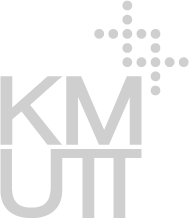Course Description
1. Foundation Courses
LNG 500 Language and Study Skills 3(3-0-9)
Advanced language skills for academic success: listening, speaking reading and writing. Academic
genres: lectures, essays, term assignments, presentation, arguments, discussion. Cognitive skills for performance in academic and pedagogic environments.
2. Compulsory courses
LNG 501 Introduction to Linguistics 3(3-0-9)
Scope of linguistics. Nature of human language. Major linguistic concepts for language teachers (Phonetics and phonology, morphology, syntax, semantics and pragmatics). English Language knowledge for teachers (Language terminology, language use and usage, functional grammar, pedagogical grammar.) Sentence analysis. Language and grammar exploration.
LNG 502 Linguistic Descriptions in ELT 3(3-0-9)
Relationship between language descriptions and language teaching. Traditional grammar andgrammar translation method. Structuralism and audio-lingual method. Transformational-generative grammar and its influence on language teaching. Sociolinguistic views of language. Language variation. Notional and functional syllabus. Communicative language teaching. Discourse and genre-based language descriptions and its influence on language teaching.
Objectives of teaching, Beliefs and factors influencing teaching. Teaching and learning. Roles
and ethics of teachers. Roles of learners. Power in the classroom. Effective teaching: classroom interaction , teacher talk, variety of activities, visual support, paradigms in teaching. Stages in a lesson and transitions. Lesson planning and long term planning. Reading strategies and material interpretation. Vocabulary and activity types. How to teach reading. Practice teaching reading. Peer teaching on reading. Listening strategies and material interpretation. Vocabulary and activity types. How to teach listening. Practice teaching listening. Peer teaching on listening. Teacher development.
Objectives of teaching, Beliefs and factors influencing teaching. Teaching and learning. Roles
and ethics of teachers. Roles of learners. Power in the classroom. Effective teaching: classroom interaction , teacher talk, variety of activities, visual support, paradigms in teaching. Stages in a lesson and transitions. Lesson planning and long term planning. Reading strategies and material interpretation. Vocabulary and activity types. How to teach reading. Practice teaching reading. Peer teaching on
Objectives of teaching, Beliefs and factors influencing teaching. Teaching and learning. Roles
and ethics of teachers. Roles of learners. Power in the classroom. Effective teaching: classroom interaction , teacher talk, variety of activities, visual support, paradigms in teaching. Stages in a lesson and transitions. Lesson planning and long term planning. Reading strategies and material interpretation. Vocabulary and activity types. How to teach reading. Practice teaching reading. Peer teaching on
Writing processes and strategies. Teaching grammar and explanations. Activity types for writing.
How to teach writing. Practice teaching writing. How to give feedback for writing. Micro teaching on writing. Speaking strategies. Activity types for speaking. How to teach speaking. Practice teaching speaking. How to give feedback and error treatment for speaking. Micro teaching on speaking.
Writing processes and strategies. Teaching grammar and explanations. Activity types for writing.
How to teach writing. Practice teaching writing. How to give feedback for writing. Micro teaching on writing. Speaking strategies. Activity types for speaking. How to teach speaking. Practice teaching speaking. How to give feedback and error treatment for speaking. Micro teaching on speaking.
Revision of learning strategies. Approaches to strategies training appropriate for the classroom.
Integration of self-access learning to the conventional classroom teaching. Some suggested teaching techniques in favour of learner independence. Implementation of micro-teaching including lesson planning of how to practice strategy training, teaching and reflection on the teaching.
Revision of learning strategies. Approaches to strategies training appropriate for the classroom.
Integration of self-access learning to the conventional classroom teaching. Some suggested teaching techniques in favour of learner independence. Implementation of micro-teaching including lesson planning of how to practice strategy training, teaching and reflection on the teaching.
Preparation for teaching. Implementation of teaching and learning. Supervision and feedback
of the teaching. Reflections on teaching performance and self-evaluation.
LNG 511 Principles of Teaching I 3(3-0-9)
Objectives of teaching, Beliefs and factors influencing teaching. Teaching and learning. Roles and ethics of teachers. Roles of learners. Power in the classroom. Effective teaching: classroom interaction , teacher talk, variety of activities, visual support, paradigms in teaching. Stages in a lesson and transitions. Lesson planning and long term planning. Reading strategies and material interpretation. Vocabulary and activity types. How to teach reading. Practice teaching reading. Peer teaching on reading. Listening strategies and material interpretation. Vocabulary and activity types. How to teach listening. Practice teaching listening. Peer teaching on listening. Teacher development.
LNG 512 Principles of Teaching II 3(3-0-9)
Writing processes and strategies. Teaching grammar and explanations. Activity types for writing. How to teach writing. Practice teaching writing. How to give feedback for writing. Micro teaching on writing. Speaking strategies. Activity types for speaking. How to teach speaking. Practice teaching speaking. How to give feedback and error treatment for speaking. Micro teaching on speaking.
LNG 513 Learning Independence in the Conventional Classroom 3(3-0-9)
Revision of learning strategies. Approaches to strategies training appropriate for the classroom. Integration of self-access learning to the conventional classroom teaching. Some suggested teaching techniques in favour of learner independence. Implementation of micro-teaching including lesson planning of how to practice strategy training, teaching and reflection on the teaching.
LNG 521 Language Learning Theories 3(3-0-9)
Introduction to learning. Learning contexts. Learning theories: behaviorism, cognitive psychology, constructivism, social-interaction theories, humanistic education, discovery learning, brain-based learning, problem-based learning, project-based learning, reflective learning, thinking skills, active learning. Nature of learning: memory, comprehension, schemata. Influences on learning: affective factors, motivation, individual differences, multiple intelligence, learning styles and strategies). First and second language acquisition.
LNG 522 Individualisation and Learner Trainin 3(3-0-9)
Basic concepts of individualisation in language learning. Samples of individualised learning programmes. Learner training: methods and techniques to prepare language learners, psychological, social/affective preparation for learners, content of learner training programmes and variety of strategies used in learning tasks for life-long learning.
LNG 531 Research Methods 3(3-0-9)
Introduction to research. Research paradigms and research designs: quantitative and qualitative approaches. Consideration in doing research: variables, subject selection, reliability and validity. Finding a research topic. Setting up a research framework. Data collecting procedure. Research instruments: questionnaire, interview, observation, verbal reports, diaries, and tests. Analysing and interpreting quantitative data. Analysing and interpreting qualitative data. Writing up a research proposal.
LNG 611 Teaching Techniques in Practice 3(1-4-9)
Preparation for teaching. Implementation of teaching and learning. Supervision and feedback of the teaching. Reflections on teaching performance and self-evaluation.
LNG 612 Resource-based Learning in Practice 3(1-4-9)
Observation of normal classroom settings. Reflection and discussion on the outcomes of the observation. Implementation of teaching practice using ideas of strategy training and learner independence. Supervision and feedback of the teaching. The study on the use of on-line and general self-access materials to classroom teaching. Written report on the findings of the study.
3. Elective courses
LNG 503 Classroom Language for Teachers 3(3-0-9)
Use of appropriate English appropriately in the classroom. Language required for teaching English at different levels. Raising language awareness in the classroom. Intelligible pronunciation. Language for establishing a good class atmosphere. Managing transitions between phases in the lesson. Monitoring and checking learners’ understanding. Enhancing confidence in using English. Tasks in pairs or groups and peer teaching. E-learning activities.
LNG 523 Individualisation in Language Learning 3(3-0-9)
Theoretical bases of individualization as a teaching/learning approach. Concepts and justification of individualization. Motivation in favour of individaulisation. Individual differences and learning styles. Role change for teachers and learners. Individualisation in the normal classroom setting. Learner training: facilitating learning how to learn. Self-access work. Integrating self-access learning with the main teaching programme. Establishing and running a self-access centre. Design of self-access materials. Evaluation of self-access systems.
LNG 631 Testing and Evaluation 3(3-0-9)
Terms and concepts of testing. Key considerations in testing. Types of tests. Designing tests. Item test types. Tests of grammar. Tests of vocabulary. Tests of speaking. Tests of reading. Tests of writing. Global or integrative tests. Non-testing classroom assessment. Self-assessment. Practical concerns in language testing. Research in language testing.
LNG 651 Materials Evaluation and Adaptation 3(3-0-9)
Types of classroom materials. Characteristics of effective materials. Scaffolding and learning support. Authentic and simplified materials. Selection of materials. Principles and process of materials evaluation and adaptation. Materials analysis. Modifying materials. Materials piloting and revision of materials evaluation. Materials selection and adaptation project.
LNG 652 Course Design and Materials Development 3(3-0-9)
Principles of courses design. Needs analysis. Development of course goals and objectives. Types of syllabus. Development of syllabus from course goals and objectives. Principles of classroom materials and self-accessmaterials design. Materials analysis, materials evaluation and adaptation. Materials development, piloting and revision.
LNG 661 Establishment and Management of English Language Learning Resource Centres 3(3-0-9)
Principles of self-access learning and self-access centre (SAC). Types of SACs. Setting up SACs. Running SACs. Support systems in SACs. Giving consultation in SACs. Study visit to different learning resources. Training as a helper in SACs. Creating customized learning programme.
LNG 662 Teacher Development and Management of Innovation 3(3-0-9)
Nature and characteristics of change and innovation. Causes and barriers to change. Models of changes. Adapting innovation to be successful. Guidelines for promoting changes. The nature of staff development. The state of Thai education and change in Thai education system. Large scale change in Thailand. Institutional change in Thailand. Classroom change in Thailand. Evaluating innovation.
LNG 671 Information and Communication Technology for Language Teaching
Learning theories of technology-assisted language learning. Technology and autonomous learning. Available technology for language teaching including Standalone and Networked CALL. Computer-mediated Communication (CMC) and Web 2.0. Mobile learning. Application of technology for language learning and teaching. Models of online learning. CALL materials development. Use of technology for professional development and research. Research into technology for language teaching and learning.
LNG 681 Special Topics 3(3-0-9)
Current topics related to applied linguistics will be offered depending on staff availability and participants’ interests.
4. Thesis / Tndependent study
LNG 691 Special Study in Applied Linguistics
The participants will have the opportunity to apply skills and knowledge developed through the programme by undertaking a small-scaled study including surveying and exploring the concept of applied linguistics in the area of their interest.
LNG 692 Research Study in Applied Linguistics
This project gives participants a chance to consolidate the skills and knowledge developed through the courses to conduct a research study, similar to the thesis in type, but not in large scale. The area of study should be related to any aspect of applied linguistics.
LNG 693 Thesis in Applied Linguistics
Participants are required to design and undertake a research project, following a conventional research format, under the supervision of the thesis committee. As a rule, the topic of the thesis will be of direct relevance to English language teaching or resource-based language learning in the country or international-wide.



